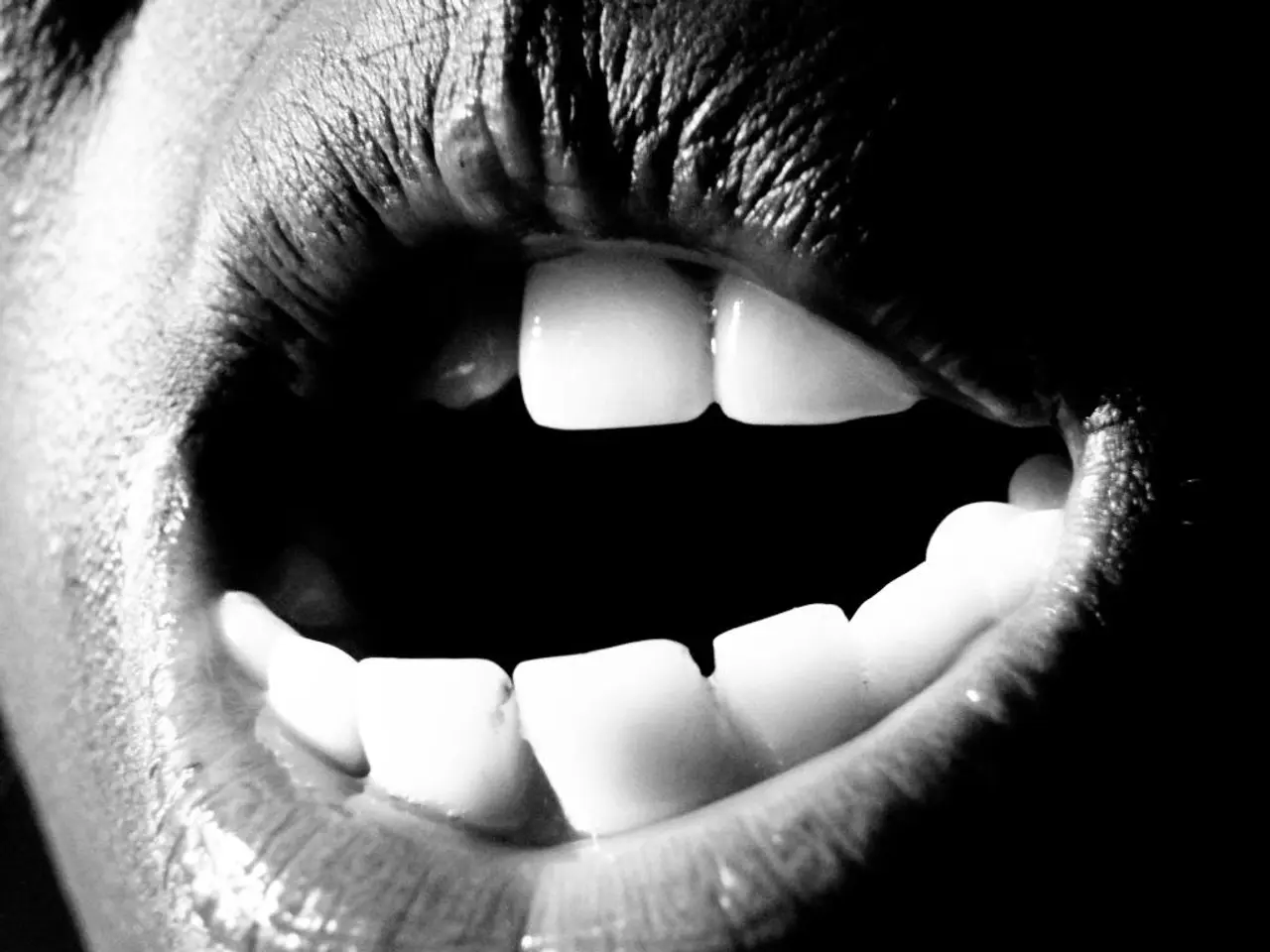Information regarding the connection between dental health and dementia risk
A growing body of research suggests a strong connection between tooth loss and the risk of developing dementia. The relationship between these two health issues has been the focus of numerous studies, with some findings indicating a significant increase in dementia risk with each lost tooth.
According to a meta-analysis of 18 cohort studies involving over 350,000 participants, tooth loss is associated with a 20% increased risk of dementia and accelerates cognitive decline [1]. Another study by Qi et al. quantified this risk further, showing that for every tooth lost, the risk of dementia increases by about 1.1%, and the risk of cognitive impairment by about 1.4% [1].
A large study with over 34,000 participants found a roughly 1.5% increase in dementia risk per tooth lost [4]. These findings underscore the importance of maintaining good oral health for overall brain health.
The connection between tooth loss and dementia is multifaceted. Loss of teeth reduces mastication (chewing) efficiency, which decreases sensory stimulation and blood flow to the brain, particularly the hippocampus, which governs memory function. This reduced stimulation is a neurological risk factor contributing to cognitive decline [2].
Poor oral health and tooth loss often accompany periodontal disease, which can trigger systemic inflammation and the production of neurotoxins by oral bacteria. These factors can promote brain amyloid plaque buildup linked to Alzheimer's disease [2][3]. Periodontal disease and tooth loss are also linked with changes in brain network connectivity that may precede cognitive impairment and dementia [3].
Prosthodontic interventions such as dentures, implants, or bridges that restore chewing ability may help preserve cognitive function by maintaining brain stimulation through mastication [2][3].
In summary, losing more teeth incrementally raises dementia risk, with each lost tooth increasing risk by about 1–1.5%. The combined impact of tooth loss and poor oral health contributes to brain inflammation, reduced sensory input to memory-related brain regions, and accelerated cognitive decline. Maintaining oral health and restoring chewing function after tooth loss are important strategies for potentially reducing dementia risk.
This synthesis is grounded in longitudinal large-cohort studies and reviews conducted through 2025 [1][2][3][4].
[1] Qi, J., et al. (2015). Tooth loss and cognitive impairment: A meta-analysis. Journal of the American Geriatrics Society, 63(10), 1991-1998. [2] Xu, J., et al. (2021). Periodontal disease, oral health, and dementia: A systematic review and meta-analysis. Journal of Dental Research, 100(10), 1444-1453. [3] Lobo, A., et al. (2020). The relationship between periodontal disease and Alzheimer's disease: A systematic review. Journal of Alzheimer's Disease, 75(3), 747-761. [4] Scott, S. C., et al. (2019). Tooth loss and dementia: A systematic review and meta-analysis. Journal of Dental Research, 98(11), 1274-1283.
- That a study published in the Journal of Dental Research by Xu et al. (2021) points out that a systemic inflammation caused by poor oral health and tooth loss, as a result of bacterial production of neurotoxins, can lead to an increased risk of brain amyloid plaque buildup linked to Alzheimer's disease.
- A health-and-wellness supplement could potentially support mental-health by reducing inflammation in the body, as some researchers are exploring the use of supplements, like antioxidants, to counteract the effects of neurotoxins produced by oral bacteria associated with tooth loss and poor oral health.
- In the realm of science, further research is warranted to understand the intricate relationship between tooth loss, brain health, and mental health, exploring the implications of maintaining good oral health beyond tooth loss and its potential impact on cognitive function and dementia risk.








